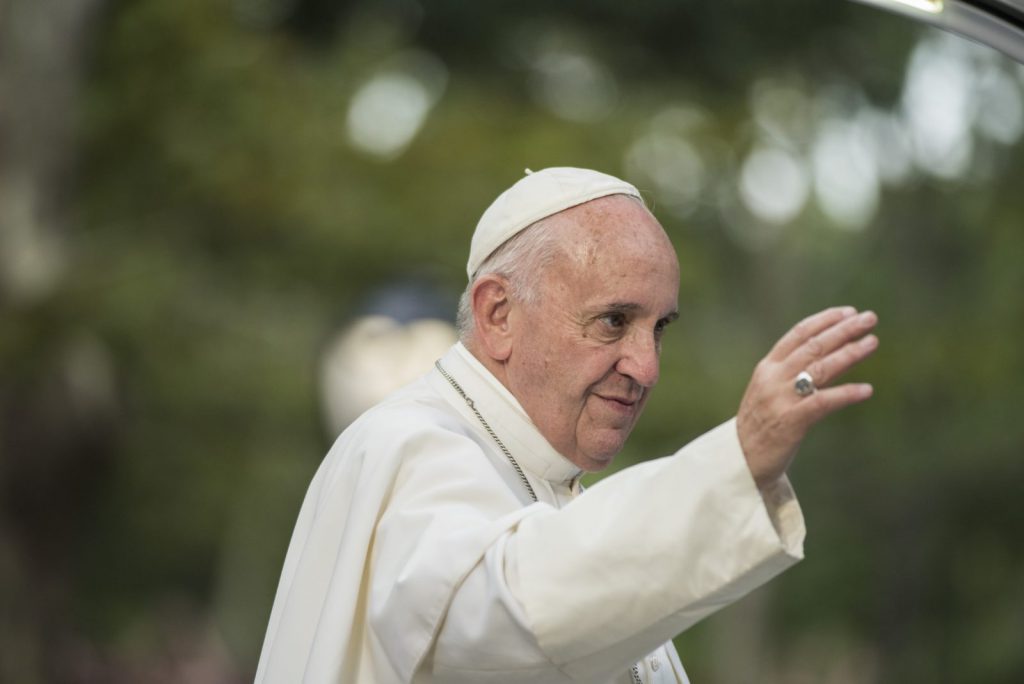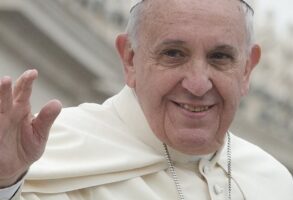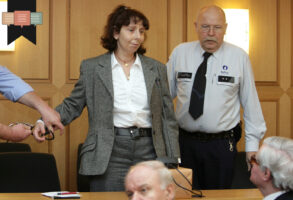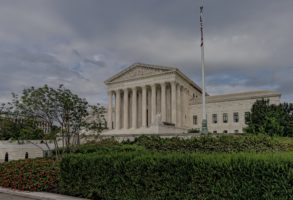
Published July 13, 2017
Why would Pope Francis, the leader of the world’s estimated 1.2 billion Catholics, intervene in the case of Charlie Gard, an infant in the UK who suffers from an extremely rare form of mitochondrial DNA depletion syndrome? Why has the Pope joined with the child’s parents in disagreement with the UK government’s decision to forbid Charlie Gard’s transfer to the US for an experimental therapy and to order the termination of his life support? British law vests authorityin the courts to determine “best interests” of the patient when there is a dispute such as this, making it quite different from the United States.
It has been reported that Pope Francis has even pursued the possibility of issuing a Vatican passport to the boy in order to facilitate his transfer to the Bambino Gesu Children’s Hospital (sometimes called “the Pope’s hospital”) in Rome.
Indeed, Charlie’s parents, Chris Gard and Connie Yates, who had a contentious and emotional hearing before UK’s High Court on Thursday, have praised the Pope for elevating their son’s case against the Greater Ormond Street Hospital in London to international prominence, and helping to preserve his life, at least for the moment.
Neither the Pope nor the Catholic Church simply insist upon life-sustaining measures, regardless of a patient’s condition or circumstance. To the contrary, in Charlie Gard’s case, the Pope’s concerns are far more nuanced and complex, grounded in Catholic social teachings on medicine, what we owe to the sick and suffering, and how to care rightly for those with disabilities.
Once again, Pope Francis is offering a powerful, profound and much-needed lesson to the entire world about how to love unconditionally our brothers and sisters on the peripheries and the grave perils of what he calls a “throwaway culture” that casts aside the weak and defenseless.
Catholicism embraces the premise that everyone is intrinsically valuable, irreplaceable and possessed of inalienable dignity, regardless of condition, circumstance or the judgment of others. Of particular relevance here, those who are severely and permanently cognitively disabled are still entitled to equal moral concern, care and protection of the law.
Regarding medical care, the Catholic Church has consistently affirmed that the proper goal of medicine is to comfort and provide for the patient in the condition in which her caregivers find her — as she is, not as anyone would wish her to be. Doctors (and people of faith) should aim to preserve the life of the patient, and should never act or withhold action with the purpose of hastening death.
That said, not all medical interventions are obligatory. If medical treatments are unduly burdensome or futile, even if their termination or refusal may foreseeably hasten death, the church deems them optional.
These concepts are enormously complex and require much reflection and analysis, but it is clear that “futility” refers here to whether the treatment will sustain the life of the patient. An intervention is not “futile” simply because it fails to reverse or cure the underlying illness or because it will not restore the patient to “normal” functioning. A wide variety of interventions could also be described as “burdensome.” Pain is an obvious form of burden. There are assuredly others.
But, fundamentally, choosing against a life-sustaining measure because it is unduly burdensome or futile with the foreseeable consequence of an earlier death is not the same thing as declining or discontinuing care to directly facilitate dying. The former is a choice for a different kind of life, however long it lasts, and the latter is a choice for death.
The Charlie Gard matter has captured Pope Francis’s attention because it appears to be a case in which the British government is preventing the child’s parents from seeking to provide him with experimental medical care, on the grounds that it is not in Charlie’s “best interests” to continue living in a brain-damaged state.
In the UK courts’ judgment, even though he is not imminently dying, Charlie Gard’s quality of life will be so poor as a cognitively disabled person that it is better to withdraw his life support for the purpose of ending his life. If the proposed therapy fails to reverse his brain injuries, the UK court has made it clear that it does not offer a meaningful “benefit” to Charlie. The only action in his “best interests” is to take steps meant to end the life that is no longer a benefit to him.
It would seem that Pope Francis objects to the state usurping the role of the parents to determine their child’s best interests. They want to keep fighting for Charlie and appear not to regard his disability as a warrant to discontinue life-sustaining measures. Notice the disagreement between Charlie’s parents and Pope Francis’s conception of “futility” and “medical benefit” (based on Charlie’s current needs) versus that of the UK government (based on Charlie’s quality of life).
Pope Francis and Charlie’s parents seek to care for and comfort the patient the child now is, despite his perhaps permanently diminished state. Medical interventions that comfort or improve Charlie’s condition are seen as beneficial, even if they cannot restore his brain function to a preferred level.
By contrast, the UK government and the hospital do not recognize any measure as beneficial that fails to give Charlie their idealized standard of cognitive function. Since they seem convinced that nothing can restore such functioning, the only “beneficial” intervention is to terminate Charlie’s life-sustaining measures and for him to die.
Pope Francis believes, along with Charlie’s parents, that Charlie’s life — and all life — is worth fighting for, regardless of the presence of disability.
So long as there is a medical intervention available that is not unduly burdensome and will benefit the patient that Charlie is (not who we would wish him to be), we should do our best to see that Charlie and patients like him receive it. And, most importantly, we should always resist the temptation to terminate life-sustaining measures because of our judgment that the disabled patient’s life is no longer worth living.
O. Carter Snead is a fellow at the Ethics and Public Policy Center, the director of the Center for Ethics and Culture, and a professor of law at the University of Notre Dame. The views expressed in this commentary are his.





